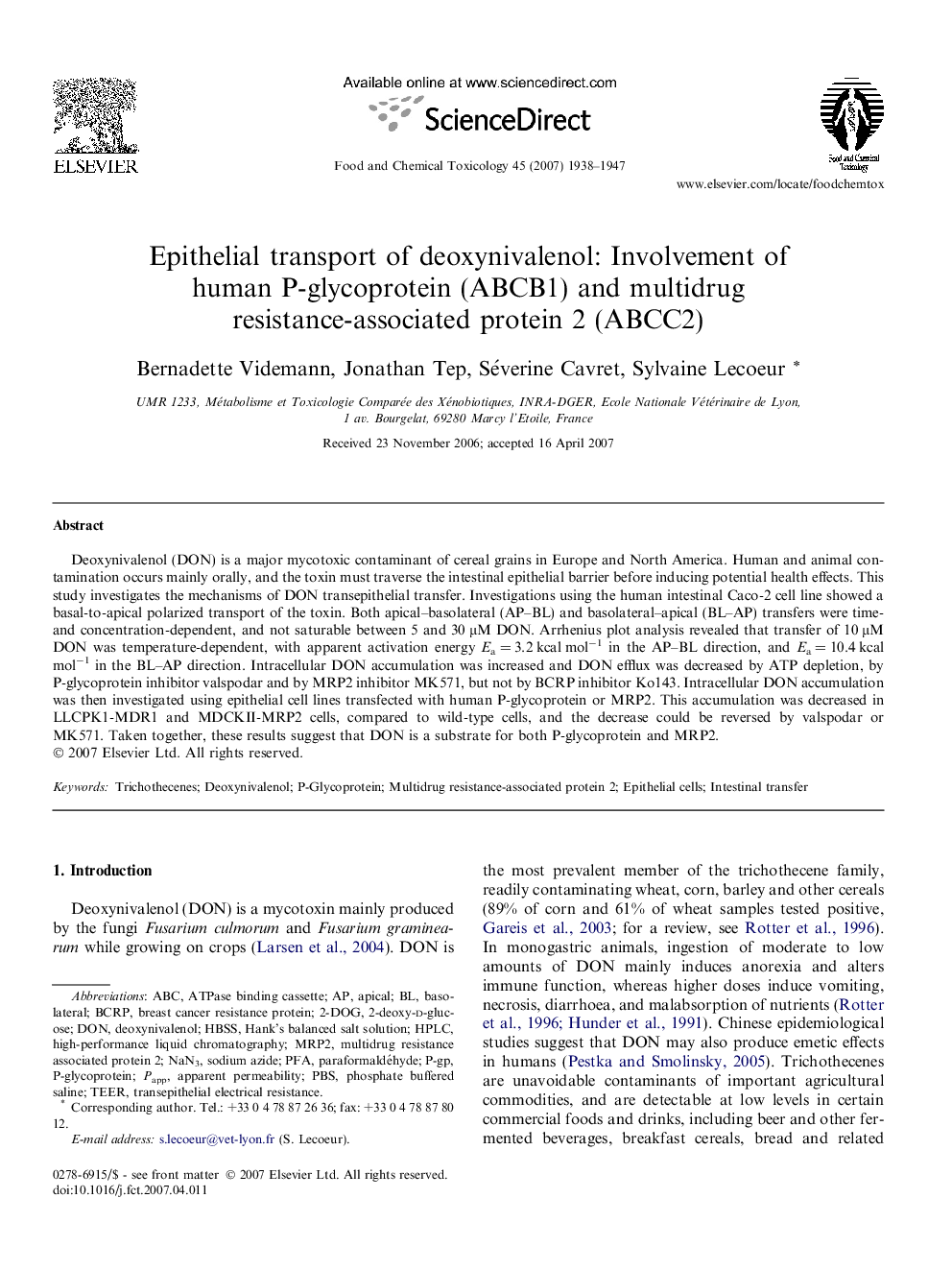| کد مقاله | کد نشریه | سال انتشار | مقاله انگلیسی | نسخه تمام متن |
|---|---|---|---|---|
| 2588082 | 1130950 | 2007 | 10 صفحه PDF | دانلود رایگان |

Deoxynivalenol (DON) is a major mycotoxic contaminant of cereal grains in Europe and North America. Human and animal contamination occurs mainly orally, and the toxin must traverse the intestinal epithelial barrier before inducing potential health effects. This study investigates the mechanisms of DON transepithelial transfer. Investigations using the human intestinal Caco-2 cell line showed a basal-to-apical polarized transport of the toxin. Both apical–basolateral (AP–BL) and basolateral–apical (BL–AP) transfers were time- and concentration-dependent, and not saturable between 5 and 30 μM DON. Arrhenius plot analysis revealed that transfer of 10 μM DON was temperature-dependent, with apparent activation energy Ea = 3.2 kcal mol−1 in the AP–BL direction, and Ea = 10.4 kcal mol−1 in the BL–AP direction. Intracellular DON accumulation was increased and DON efflux was decreased by ATP depletion, by P-glycoprotein inhibitor valspodar and by MRP2 inhibitor MK571, but not by BCRP inhibitor Ko143. Intracellular DON accumulation was then investigated using epithelial cell lines transfected with human P-glycoprotein or MRP2. This accumulation was decreased in LLCPK1-MDR1 and MDCKII-MRP2 cells, compared to wild-type cells, and the decrease could be reversed by valspodar or MK571. Taken together, these results suggest that DON is a substrate for both P-glycoprotein and MRP2.
Journal: Food and Chemical Toxicology - Volume 45, Issue 10, October 2007, Pages 1938–1947